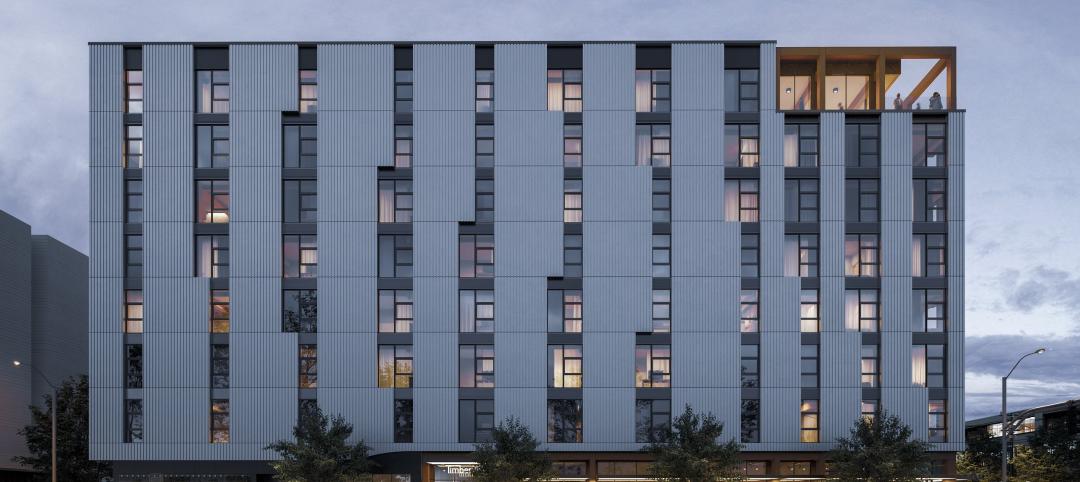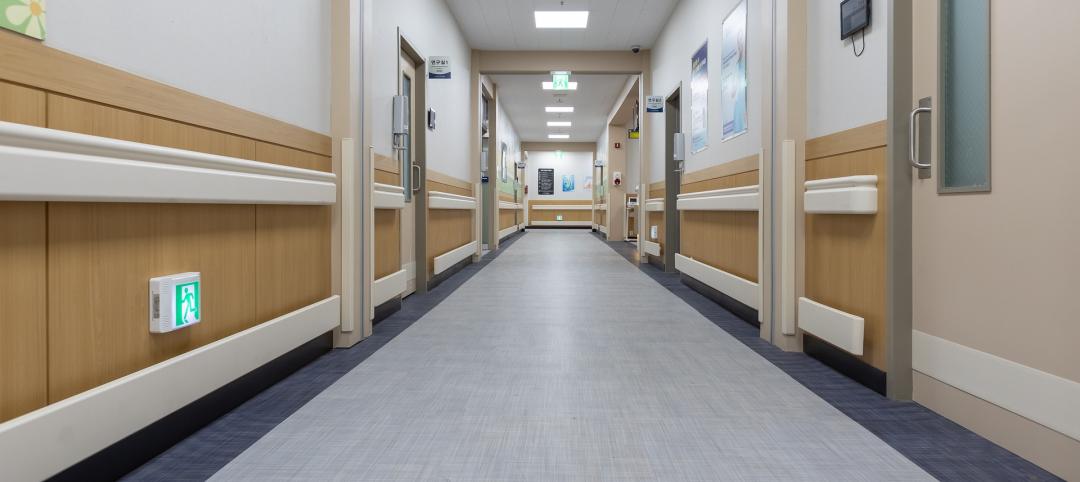PORTLAND, Ore. – Demand for the services of commissioning professionals is rising and will continue to rise into the near future, according to a survey by PECI and the Building Commissioning Association (BCA).
The numbers tell the story of an industry experiencing growth as a result of the increasing popularity of buildings that earn green certifications. In addition, the commissioning industry expects the adoption of more ambitious building and energy codes nationwide to further amplify demand. Together, these factors have created a need for training services that will expand the commissioning workforce and allow the industry to effectively meet these new, rising needs.
We asked attendees of the BCA’s National Conference on Building Commissioning (NCBC) to assess their professional experiences in a variety of areas, including: current motivators for commissioning work; expected changes to the commissioning industry as a result of new building codes; and training needs. The survey revealed that:
· 72 percent of respondents, mostly commissioning professionals, have experienced more demand for new building commissioning services in the past year.
· 69 percent have experienced more demand for existing building commissioning in the past year.
· Green building certifications like LEED® and ENERGYSTAR are significant motivators for commissioning, according to 68 percent of those surveyed.
· Green certifications are followed closely by corporate environmental goals, which were cited as motivators by 64 percent of respondents.
· 56 percent expect changes to building and energy codes to drive an additional increase in demand for commissioning.
· The rising demand has created a need for training industry wide; 68 percent cited a need for training on specialty systems like building enclosures and renewables.
· In order to adapt to new building codes and rising demand, respondents anticipate a need for increased training and certification and the deployment of larger teams with broader skill sets.
Read a more detailed summary of the survey findings here.
The survey findings support the recent creation of a comprehensive Commissioning Authority Training program, which PECIand the BCA developed in tandem and launched this spring. Read more about the curriculum at learn.peci.org.
The findings also correlate with the results of this year’s BCA Leadership Conference, where 71 commissioning authorities representing 66 U.S. and Canadian firms planned the association’s roadmap in strategic areas of education, best practices, certification, codes and standards and international development.
PECI and the BCA have supported the positive evolution of the commissioning industry for decades. PECI helped pioneer commissioning processes and best practices and remains a leader in the development of commissioning programs, research and tools. “PECI’s mission has always aligned exactly with the mission of the commissioning industry,” said Dan Reese, PECISenior Program Manager. “This survey was our latest effort to stay informed and serve the industry as best we can.”
“The BCA helps members and their organizations meet challenges and changes as they arise within the commissioning profession. We worked with PECI to develop this survey and a training program that will help produce outstanding new commissioning professionals and also deepen the knowledge and skills of existing ones,” said Liz Fischer, Executive Director. “Our job is to make sure the industry is ready to embrace the increasing demand and thrive.”
About PECI
PECI is a leader in the field of energy efficiency solutions, with expertise in designing and delivering programs for utility and government agency clients. Through sustained market and customer engagement, PECI achieves persistent energy savings and reaches millions of residential, commercial and industrial customers. A nonprofit corporation dedicated to creating the new energy economy, PECI was founded in 1980 and has offices in Portland, Oregon as well as Northern and Southern California. To learn more visit www.peci.org.
About BCA
The Building Commissioning Association is an international non-profit organization that serves as the recognized authority and resource on commissioning. Our membership is made up of professionals from the commercial building industry who are dedicated to using and maintaining the highest standards and practices in the commissioning process. The mission of the BCAis to guide the building commissioning industry by advancing best practices, education and promoting the benefits of commissioning to design and construct buildings that work. Learn more at www.bcxa.org.
Related Stories
Government Buildings | May 10, 2024
New federal buildings must be all-electric by 2030
A new Biden Administration rule bans the use of fossil fuels in new federal buildings beginning in 2030. The announcement came despite longstanding opposition to the rule by the natural gas industry.
Mass Timber | May 8, 2024
Portland's Timberview VIII mass timber multifamily development will offer more than 100 affordable units
An eight-story, 72,000-sf mass timber apartment building in Portland, Ore., topped out this winter and will soon offer over 100 affordable units. The structure is the tallest affordable housing mass timber building and the first Type IV-C affordable housing building in the city.
K-12 Schools | May 7, 2024
World's first K-12 school to achieve both LEED for Schools Platinum and WELL Platinum
A new K-12 school in Washington, D.C., is the first school in the world to achieve both LEED for Schools Platinum and WELL Platinum, according to its architect, Perkins Eastman. The John Lewis Elementary School is also the first school in the District of Columbia designed to achieve net-zero energy (NZE).
Healthcare Facilities | May 6, 2024
Hospital construction costs for 2024
Data from Gordian breaks down the average cost per square foot for a three-story hospital across 10 U.S. cities.
MFPRO+ Special Reports | May 6, 2024
Top 10 trends in affordable housing
Among affordable housing developers today, there’s one commonality tying projects together: uncertainty. AEC firms share their latest insights and philosophies on the future of affordable housing in BD+C's 2023 Multifamily Annual Report.
Retail Centers | May 3, 2024
Outside Las Vegas, two unused office buildings will be turned into an open-air retail development
In Henderson, Nev., a city roughly 15 miles southeast of Las Vegas, 100,000 sf of unused office space will be turned into an open-air retail development called The Cliff. The $30 million adaptive reuse development will convert the site’s two office buildings into a destination for retail stores, chef-driven restaurants, and community entertainment.
Codes and Standards | May 3, 2024
New York City considering bill to prevent building collapses
The New York City Council is considering a proposed law with the goal of preventing building collapses. The Billingsley Structural Integrity Act is a response to the collapse of 1915 Billingsley Terrace in the Bronx last December.
K-12 Schools | Apr 30, 2024
Fully electric Oregon elementary school aims for resilience with microgrid design
The River Grove Elementary School in Oregon was designed for net-zero carbon and resiliency to seismic events, storms, and wildfire. The roughly 82,000-sf school in a Portland suburb will feature a microgrid—a small-scale power grid that operates independently from the area’s electric grid.
AEC Tech | Apr 30, 2024
Lack of organizational readiness is biggest hurdle to artificial intelligence adoption
Managers of companies in the industrial sector, including construction, have bought the hype of artificial intelligence (AI) as a transformative technology, but their organizations are not ready to realize its promise, according to research from IFS, a global cloud enterprise software company. An IFS survey of 1,700 senior decision-makers found that 84% of executives anticipate massive organizational benefits from AI.
Codes and Standards | Apr 30, 2024
Updated document details methods of testing fenestration for exterior walls
The Fenestration and Glazing Industry Alliance (FGIA) updated a document serving a recommended practice for determining test methodology for laboratory and field testing of exterior wall systems. The document pertains to products covered by an AAMA standard such as curtain walls, storefronts, window walls, and sloped glazing. AAMA 501-24, Methods of Test for Exterior Walls was last updated in 2015.

















